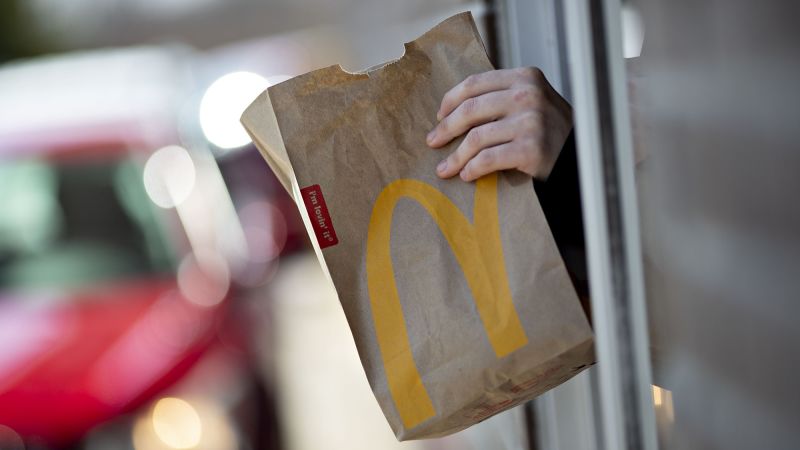If elected in the upcoming fall, Kamala Harris and Doug Emhoff would make history as the first White House couple to have worked at McDonald’s, highlighting the working-class background they both share. This shared history has become a powerful tool for Democrats to showcase their working-class credentials and contrast themselves with their opponents, without directly mentioning Donald Trump and the Republican ticket. Harris, who had a summer job at McDonald’s while growing up, and Emhoff, who was named employee of the month at the fast-food chain, often use their experiences to connect with voters and emphasize their relatability.
Democrats have been using the McDonald’s connection in various speeches and campaign ads to appeal to voters and prove that they understand the struggles of everyday working Americans. By highlighting Harris and Emhoff’s backgrounds in food service work, Democrats hope to make Trump and his wealthy upbringing appear elitist and disconnected from the working class. This strategy is part of a larger populist, pro-worker narrative that the Democratic party has been embracing under President Joe Biden, who has championed unions and supported workers’ rights.
The shift in demographics and changes in the global economy have led to working-class White voters, who have traditionally supported Democrats, aligning more with the Republican Party. This has prompted Democrats to focus on building a strong labor movement in America and appealing to voters who have worked in low-paying and physically demanding jobs, such as food service. By showcasing the experiences of individuals like Harris and Emhoff, the Democratic party is trying to resonate with a broader audience and connect with voters who may feel alienated by the current administration’s policies.
The McDonald’s rhetoric is a way to humanize Harris and Emhoff, making them more relatable to millions of Americans who have worked in the food service industry. This shared experience is seen as a point of pride for many individuals and serves as a reminder of the struggles that many Americans face in the workforce. By highlighting their time at McDonald’s, Harris and Emhoff are able to connect with voters on a personal level and demonstrate their understanding of the challenges that come with working in low-paying jobs.
Democratic leaders like Texas Rep. Jasmine Crockett and New York Rep. Alexandria Ocasio-Cortez have also emphasized their working-class backgrounds and experiences in food service to appeal to voters and showcase their relatability. This populist approach has become a key strategy for Democrats as they seek to broaden their appeal and attract a diverse group of supporters. By highlighting their own experiences in the workforce, Democratic leaders are able to present themselves as champions of the working class and advocates for those who may feel marginalized or overlooked.
As the Democratic party continues to embrace a populist, pro-worker narrative, the focus on individuals with working-class backgrounds, such as Harris and Emhoff, will likely become more prominent. By connecting with voters on a personal level and highlighting their shared experiences, Democrats hope to draw support from a wide range of Americans and build a strong labor movement in the country. The McDonald’s connection, along with other examples of working-class backgrounds, serves as a reminder of the importance of understanding and addressing the needs of everyday Americans in politics and policy-making.













